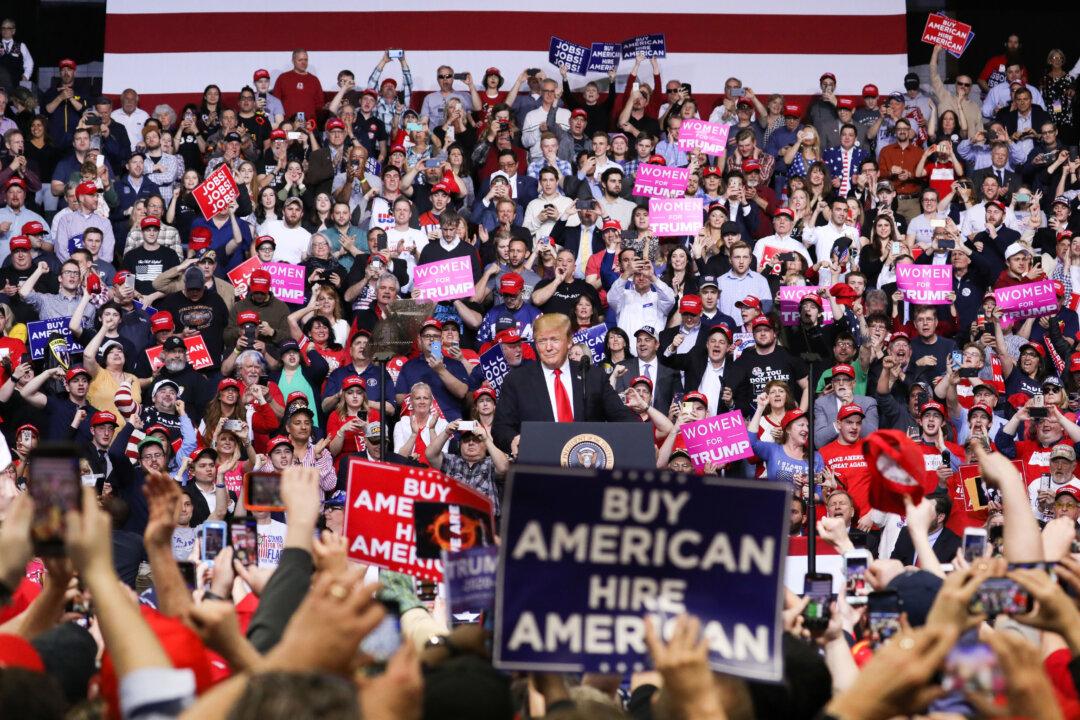President Donald Trump announced he has rescheduled a rally to be held in Tulsa, Oklahoma, to June 20 from June 19, following requests to move the date, as hundreds of thousands of people made requests for tickets.
The original date would “unfortunately” fall on a holiday known as Juneteenth, Trump said in a social media missive.




